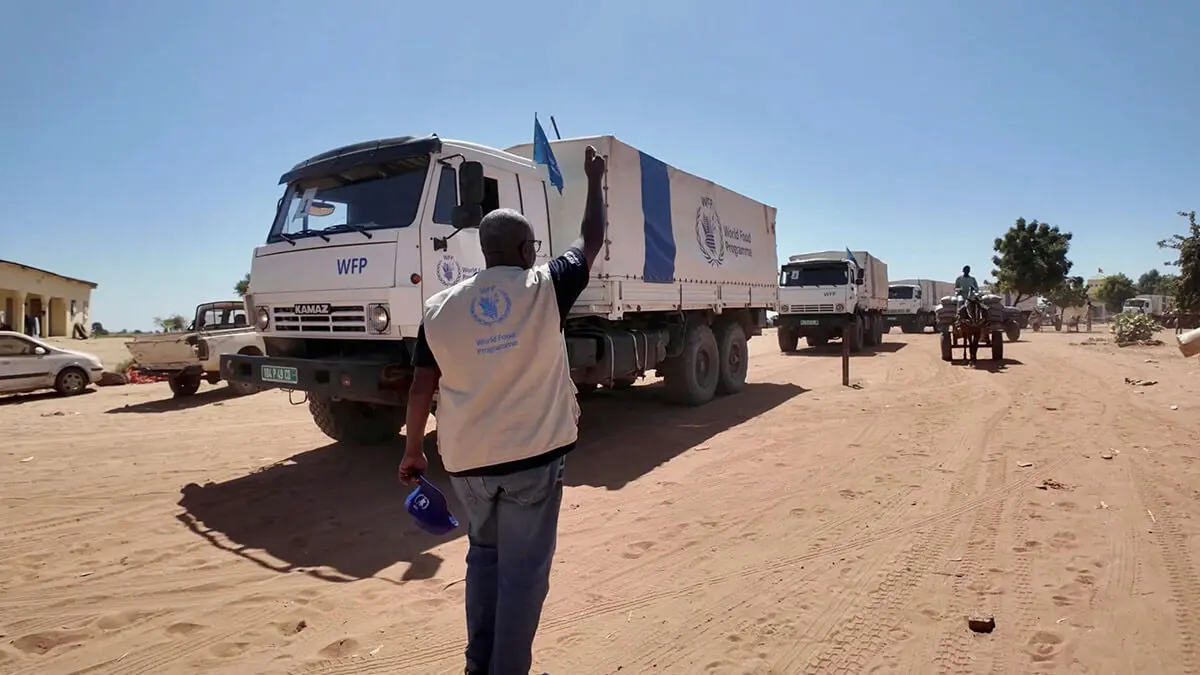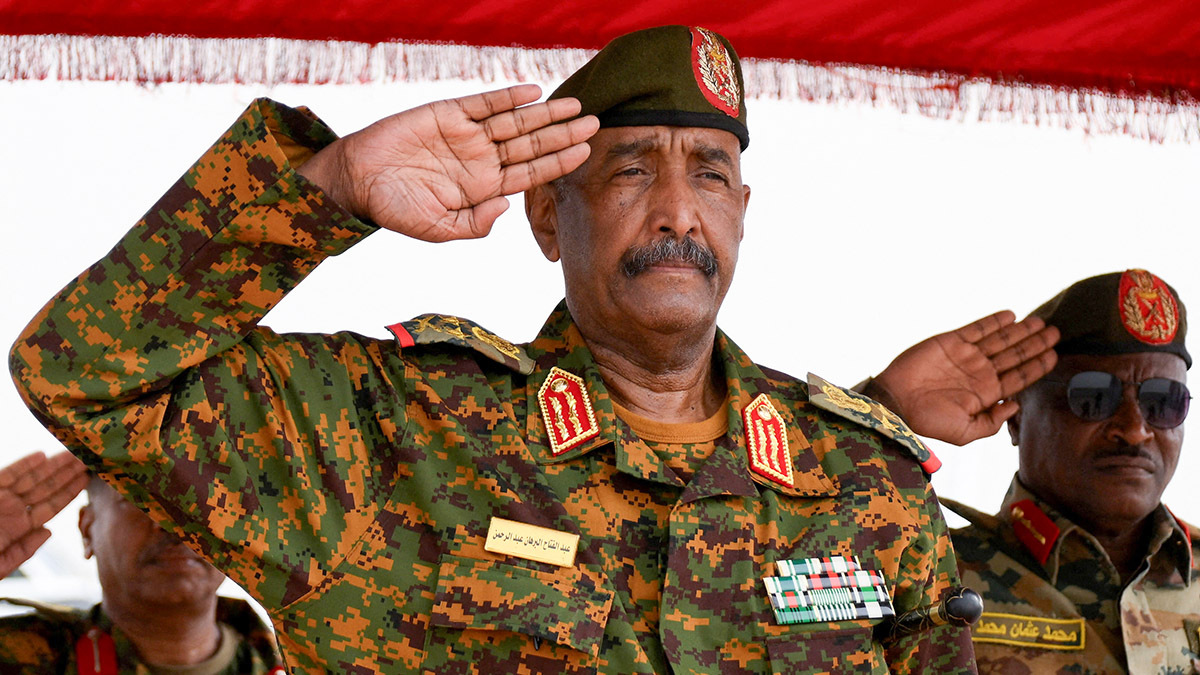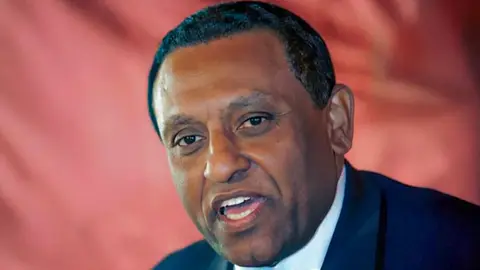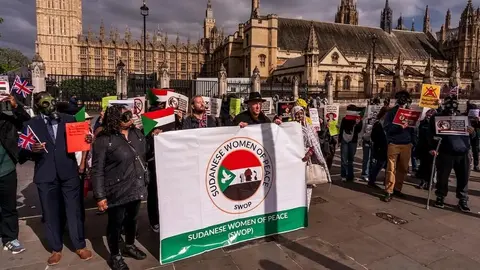Sudan: the greatest humanitarian catastrophe of the 21st century

Sudan is going through a terrible period as a result of the civil war that has been raging for several years between the National Army led by Abdel Fattah Al-Burhan and the Rapid Support Forces (RSF) commanded by Mohamed Hamdan Dagalo, alias Hemedti.
This armed conflict is leaving a bleak outlook for the population, which is suffering what has been called the greatest humanitarian catastrophe of the 21st century.

Context
Following the fall of the Omar Al-Bashir regime in 2019, Sudan began a transition that promised democratisation and peace. Agreements were signed with armed groups and a transitional government was formed, but everything was built on weak foundations.
In April 2023, conflict broke out between the Armed Forces and the FAR, former allies in the 2021 military coup against Prime Minister Abdalla Hamdok's government.
What was supposed to be a democratic transition following Al-Bashir's fall ended in a struggle for total control of the country.
The fighting has been concentrated in urban areas such as Khartoum (the capital) and the Darfur region. The FAR has been particularly accused of committing atrocities against non-Arab African communities, including massacres, rape and forced displacement, which could be considered genocide. .

Growing catastrophe
On the night of 2 June, a violent attack was reported in the North Darfur region, near Al-Koma, targeting a humanitarian convoy. The convoy, consisting of 15 trucks belonging to the World Food Programme (WFP) and UNICEF, was transporting approximately 100 metric tonnes of critical nutrition, health, education and water, sanitation and hygiene (WASH) supplies to assist children and families in the city of El Fasher.
The attack left at least five people dead and several injured. The UN has blamed both the Sudanese army and the FAR for a ‘serious violation of international humanitarian law.’ This tragic event is just one of many episodes that reflect the magnitude of the ongoing humanitarian disaster.
With a population of approximately 51 million people, the country has suffered tens of thousands of deaths as a result of the conflict. In addition, the data reflects a worrying reality in terms of human rights: 72% of those surveyed reported having been victims of physical and sexual violence, arbitrary arrests and forced recruitment.
Added to this is an alarming child crisis: 66% of school-age children are not attending classes, seriously compromising the future of an entire generation.

Endless exodus
Since the conflict broke out, approximately 4 million people have been forced to flee the country, seeking refuge in neighbouring nations such as Ethiopia, Egypt, the Central African Republic, Eritrea, South Sudan, Chad and Libya.
Mamadou Dian Balde, regional director of the UN Refugee Agency, warned of the gravity of the situation: ‘Displaced people end up seeking safety in countries already facing their own crises, severely limiting our ability to provide even the most basic assistance.’ This could pose an imminent risk to regional and even global stability.
The case of Chad clearly illustrates these repercussions. According to UNHCR, the number of refugees in the neighbouring country has tripled in just over two years. This has brought the country to breaking point, with its already fragile assistance systems completely overwhelmed.

Hunger as a tactic of war
In May 2018, the UN Security Council made a significant advance in international humanitarian law. A resolution reinforced the commitments set out in the Additional Protocols to the Geneva Conventions of 1977, expressly prohibiting the use of hunger as a method of warfare. Furthermore, armed groups must facilitate unrestricted access to humanitarian aid. It also called for the investigation and punishment of attacks targeting essential infrastructure.
For the first time, seven years later, legal proceedings are being brought against individuals accused of deliberately using hunger as a weapon of conflict. The first relevant cases are taking place in Gaza and Sudan.
In Sudan, the projections for 2025 are devastating: more than 3.2 million children could suffer from acute malnutrition and at least 770,000 would be in critical condition. But as the humanitarian emergency worsens, access to these populations is becoming increasingly difficult. Authorities are blocking entry permits and humanitarian organisations face constant threats, in a scenario that shows how war is becoming not only more violent, but also more dehumanising. Denying assistance is not just an omission: it is a strategy of war that punishes the most vulnerable.

Is there an optimistic future?
In 2025, the UN and its partners issued an urgent appeal to raise 6 billion dollars to address the humanitarian crisis in Sudan. Also, in an attempt to respond to the growing instability in the region, some states have promoted in recent weeks the lifting of the arms embargo on South Sudan, a hasty and deeply controversial measure. Organisations such as Amnesty International have warned that this could further exacerbate violence in a territory already on the brink of collapse.
However, beyond these isolated gestures, an attitude of distance and passivity prevails. Powers such as the United States and several European nations have drastically reduced their contributions to humanitarian aid, prioritising other crises such as those in Gaza and Ukraine.
Although there is aid on the ground. In the context of humanitarian aid, Médecins Sans Frontières plays a key role in the response to the crisis in Sudan. This international, non-profit, medical humanitarian organisation has been present in the country since 1979. Since the beginning of the conflict in April 2023, it has maintained a constant effort to respond to the emerging needs of the affected population. It currently supports 15 community care centres, 22 hospitals, and 42 primary health centres, including mobile clinics. It also carries out vaccination campaigns, treats cases of malnutrition and responds to disease outbreaks. However, restrictions imposed by the government and the limited response from the international community continue to hamper humanitarian access and effectiveness.
Although there is aid on the ground. In the context of humanitarian aid, Médecins Sans Frontières plays a key role in the response to the crisis in Sudan. This international, non-profit, medical humanitarian organisation has been present in the country since 1979. Since the beginning of the conflict in April 2023, it has maintained a constant effort to respond to the emerging needs of the affected population. It currently supports 15 community care centres, 22 hospitals, and 42 primary health centres, including mobile clinics. It also carries out vaccination campaigns, treats cases of malnutrition and responds to disease outbreaks. However, restrictions imposed by the government and the limited response from the international community continue to hamper humanitarian access and effectiveness.
Against this backdrop, former Prime Minister Abdalla Hamdok has insisted that the only sustainable way to overcome the conflict lies in the implementation of an inclusive political process leading to the restoration of a civilian government. Meanwhile, Sudan remains trapped in what the executive director of UNICEF has described as ‘the world's largest and most devastating humanitarian crisis.’










